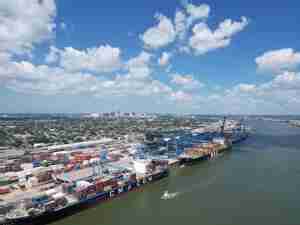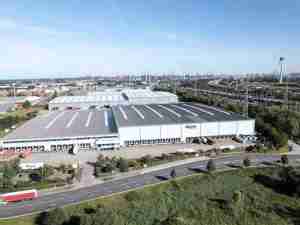Opponents and supporters of President Hosni Mubarak fought with fists, stones and clubs in Cairo as the Egyptian government rejected international calls for the leader to end his 30-year-rule now.
Shipping sources said cargo operations at the Mediterranean ports of Alexandria, Damietta and Port Said, which especially handle bulk and container shipments including grains, continued to be severely disrupted.
"Cargo handling has been suspended due to a lack of customs clearance. Security is another reason as well as the curfew," a shipping source said. "People have to get back to work now, but it may drag on."
After Mubarak went on national television on Tuesday night to say he would not stand in elections scheduled for September, the armed forces said the protesters' demands had been heard and it was time for them to clear the streets.
Curfew hours were shortened and internet and text messaging on mobile phones resumed operation on Wednesday as well.
Shipping sources said operations for ship containers, which are used for consumer goods and foodstuffs, were being hit by a lack of workers. Danish shipping and oil group A.P.Moller-Maersk said it had suspended its container terminal operations at Port Said.
"Delays and congestion of stacking areas can be expected due to the fact that containers continue to be discharged while no cargoes are being released," said logistics company GAC.
"Break bulk operations are only permitted for non-direct delivery cargo, and discharge operations are very slow, due to a shortage of labour and diesel for shore equipment." Break bulk is loose cargo such as cartons stored directly in a ship's hold as opposed to containers or dry bulk cargoes such as grain.
Looting Fears
Newly appointed Trade Minister Samiha Fawzi outlined an emergency plan on Tuesday to get vital foodstuffs and fuel from ports, warehouses and factories to distribution outlets.
"Unloading is happening under the supervision of the army. There has been quite a bit of looting and merchandise stolen. One boat was even said to have been totally looted," a European grains trader, said after speaking with a local Egyptian contact by telephone.
The trader said there was uncertainty about the state of supply to Egyptian bakeries, with reports some were closed due to the unrest in the country.
Shipping sources said trucks could not get into ports to unload due to the lack of port customs, and with banks being closed, truckers were not being paid.
"Trucks are not able to move from outside the port gates," a shipping source said. "There are a lot of vessels waiting to berth." The state news agency said the banks themselves would remain closed for a fifth straight day on Thursday but reopen on Sunday. The stock exchange will also remain closed.
"Trucks are not able to have cargoes loaded and the basic reason is there is no one to give them permits to get into the port of (Alexandria)," said Dan Delany, an Alexandria-based agent for the Lloyd's of London insurance market. (Reuters)
Sources said port congestion was also increasing.
"At this time of year there will be a lot of bulk cargo going into Egypt and there is definitely a build up of delays for vessels," a shipping source said.
Nevertheless, movement of traffic through the Suez Canal continued to be unaffected.
At least 140 people are estimated to have been killed so far in nine days of turmoil as public frustration with corruption, oppression and economic hardship under Mubarak boiled over.









